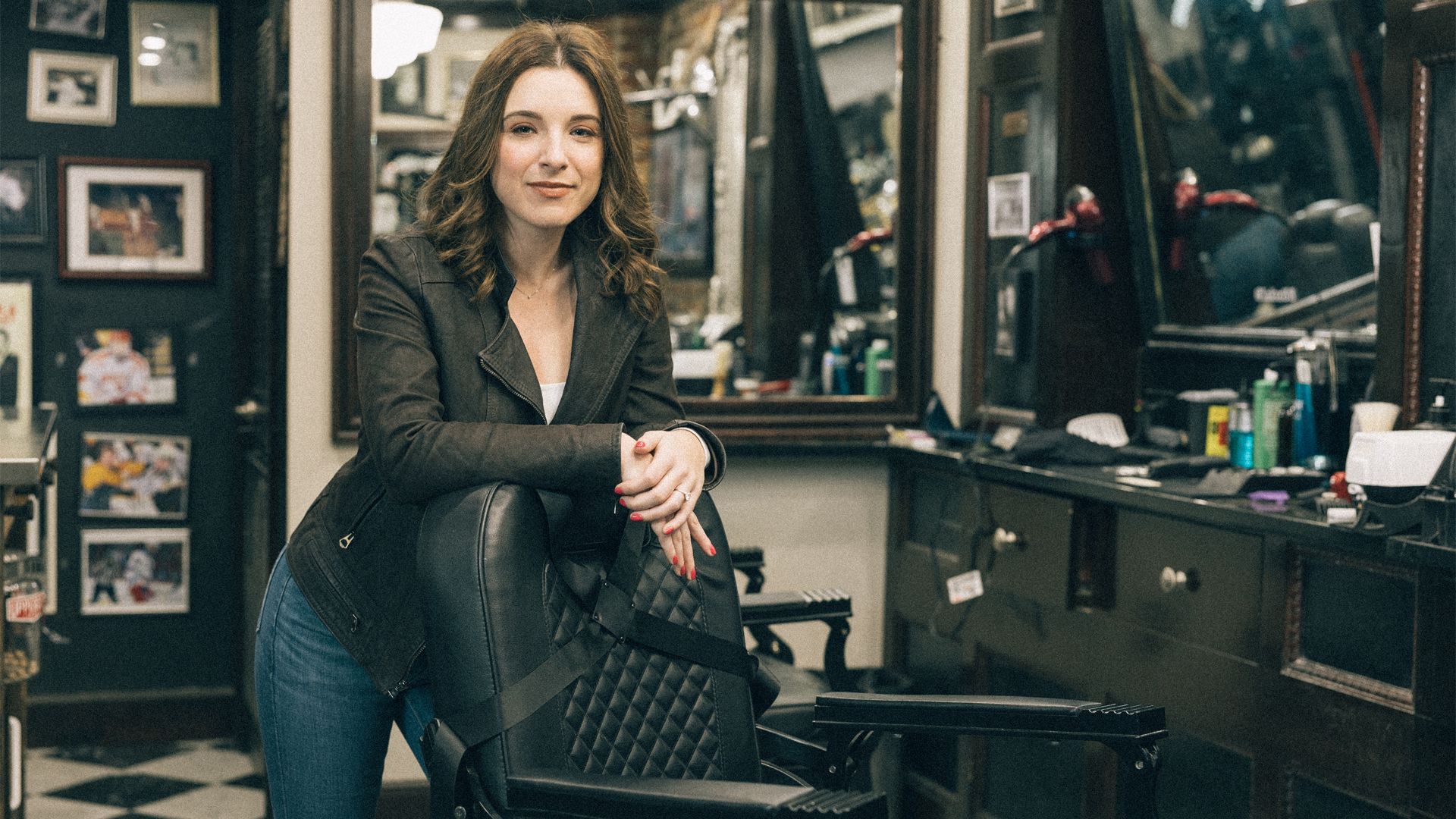

Lauren’s story: I Mo for my dad and all the men in my life that I care about
How Movember first came into my life
My dad was diagnosed with prostate cancer when I was a sophomore in college. My dad and I are planners, so when something unplanned – like prostate cancer – comes into your life, your brain starts to race, you look at the numbers, the statistics, but you don’t really know who or how to talk about it. Movember came to us as a resource from my dad’s doctor. The research, the programs, the community – it all made us feel more calm. In a sea of chaos, with something so tumultuous and life-changing going on, something like Movember helped us get to the other side together.
How I came back to Movember
So, that’s how Movember came into my life. But I came back to Movember, because I wanted to give back to the cause that gave me the calm, security, and community I needed when my dad was diagnosed. I went to school in Boston and I live in Boston, and the Boston Marathon has always been this really powerful thing. I saw that Movember had a marathon team for the New York City and Chicago marathons and I thought, if my dad can go to radiation 5 times a week – a long, tiring, painful process – I can run these marathons to raise funds and give back to a cause that has meant so much to me and my family.
When I crossed the finish line of my first marathon, I just broke down in tears. I cried the entire way through – part of it was because it was painful – but I was just so overwhelmingly happy and proud and thinking about how I just raised money for something that’s going to impact someone’s life.
Why men’s health matters to me
I have important men in my life that I care about. I fortunately have a lot of men in my life who care more about me than sometimes they care about prioritizing themselves and I think that's such a wonderful quality in my partner, my brother, my father. But I want to make sure that they know that they should be prioritizing themselves, and they should take the time to care for themselves.
When my dad was first diagnosed with cancer, he didn't tell us for 4 months. He didn't want to share. He didn't want to worry anyone because he cared for us. But I think by telling us and keeping us in the loop, that could have empowered me or empowered others to be like, “Man, maybe I should get checked. If this can happen to this person, maybe I should go get a checkup.” Him being a little more closed off, it honestly created more fear for me. So, since then, we’ve had to come to terms with this as a family. Now, we are an open book. We're not gonna do that again.
The ripple effects
When you’re not sharing and just taking the burden on yourself, it’s very isolating. The stigma that surrounds guys talking about how they’re feeling or their health, trickles over. It trickles over into the way you have relationships with your family, your partner, your siblings, your co-workers. As a Mo Sister I’m trying to break this stigma down. It’s so important to grow beyond just “smile and nod” conversations. It allows us to be better pillars of support for the people in our lives, whether you’re a woman or a man.
Deciding to be more open as a family has been such a good thing for us. It allowed us to share more easily when we’re struggling and have more open lines of communication. Movember’s been a big part of that. It’s helped me to have more open conversations with myself and those around me, giving me the tools to tackle important conversations about my own health and educating others to take care of themselves.
These ripple effects that come from a dollar or a conversation make such a difference in someone’s life down the road. And if that means I have to suck it up and run in the rain or I have to pull a hammy for my next Movember marathon, I’m in. And I know my biggest supporter and Movember’s biggest champion will be there cheering me on: my dad.
Support Lauren’s mission to change the face of men’s health.